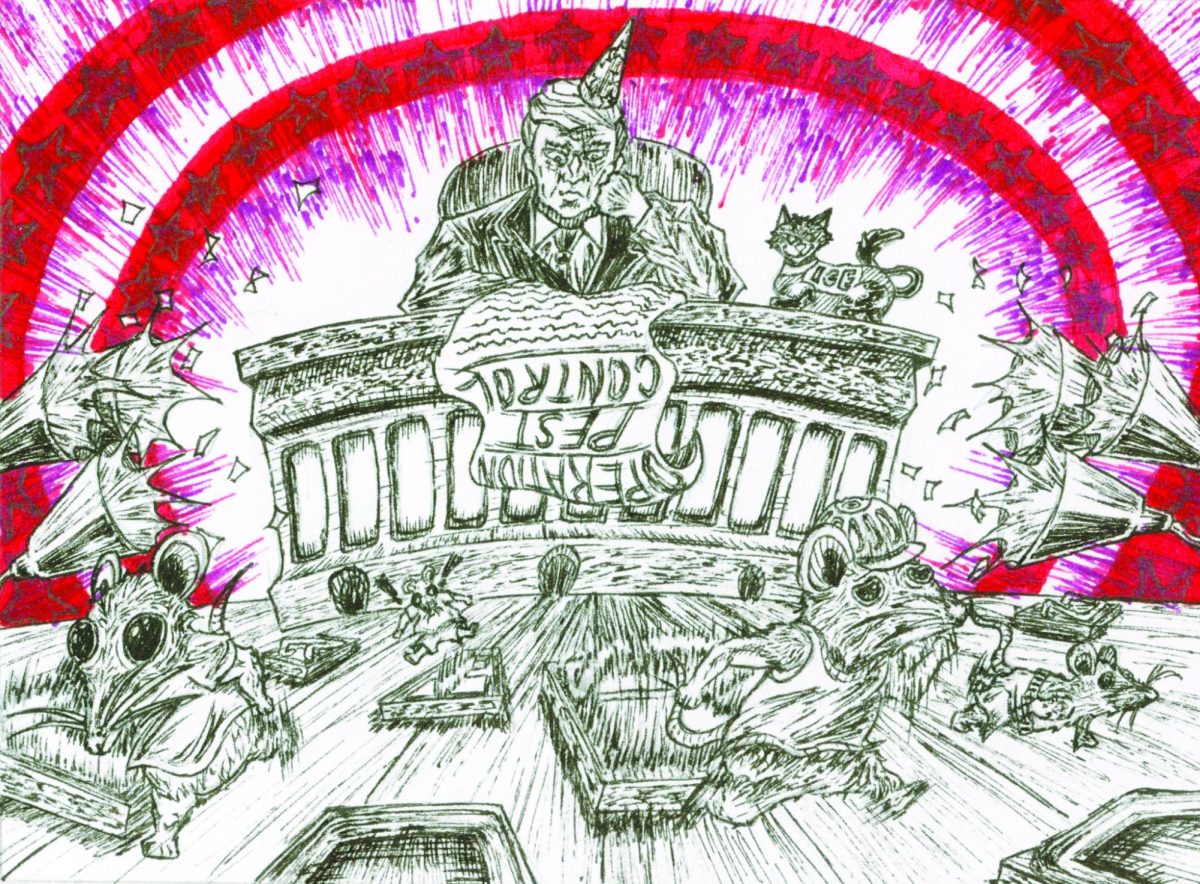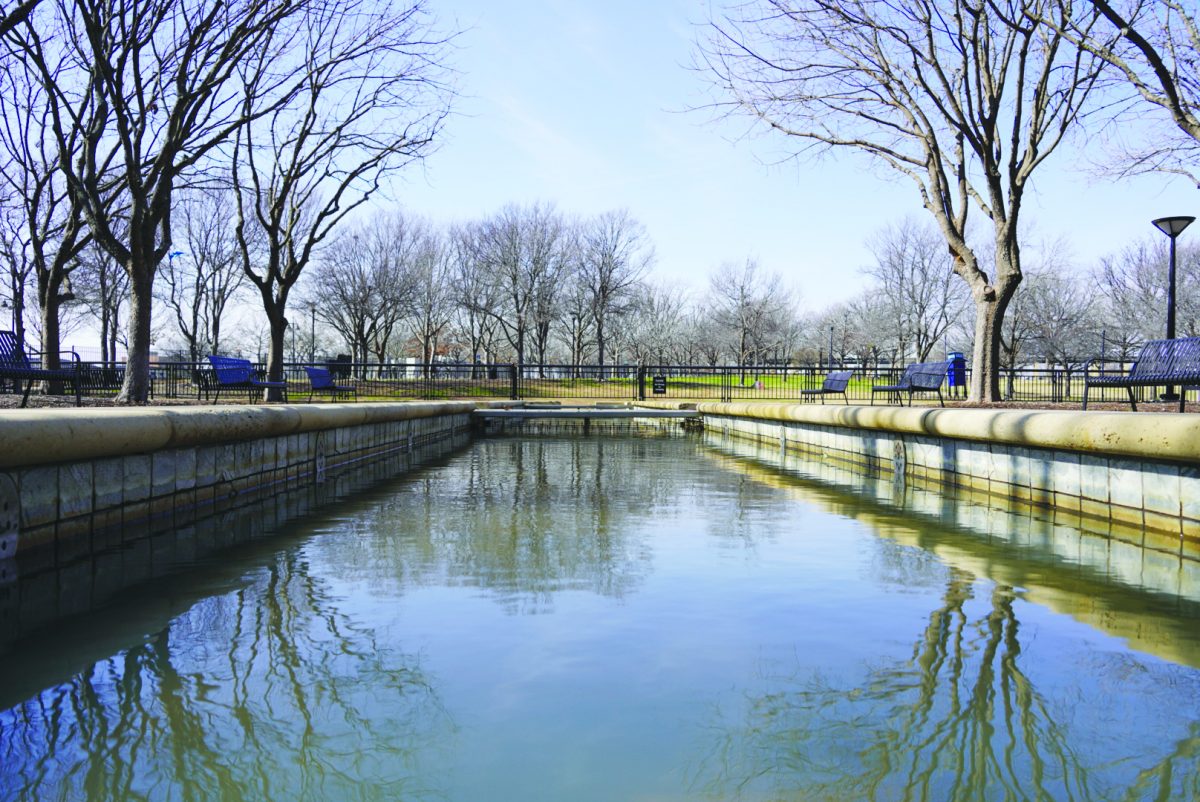By Erin Alexis Goldman
Senior Staff Writer

Texas produced about a third of the nation’s natural gas last year, the greatest share of any state, according to the U.S. Energy Information Administration. In early November 2014, Denton, Texas, made national news after voters approved a ban on hydraulic fracturing, commonly referred to as fracking.
Denton sits atop the Barnett Shale, one of the largest natural gas reserves in the U.S., with about 275 natural gas wells in the city. “Denton, Texas, is where hydraulic fracturing was invented,” Bruce Baizel, Earthworks energy program director, said in an article by Marice Richter for Huffington Post. “If this place in the heart of the oil and gas industry can’t live with fracking, then who can?”
Fracking is a process that shoots sand, water and chemicals underground at high pressure to fracture rock and release trapped oil and gas into a well. This opens up fissures that allow the oil and natural gas to flow out more freely. The process generates wastewater, which is often pumped underground as means of disposal.
Dr. Fred Busche is a geology professor at Brookhaven College and a fracking expert. He has a Ph.D. in geochemistry and worked for various companies involved with the exploration and development of oil, gas as well as precious and base metal deposits. He spent roughly 10 years working for the EPA’s center for groundwater research as manager of a scientific support staff.
“The beauty of what it is they’re doing is that in most of these fracturing oil and gas operations, the natural gas occurs and the natural gas then propels the oil, so there’s really no pumping with this process,” he said.
Throughout the 1990s, U.S. natural gas production had been stuck on a plateau. “Then the shale boom caught everyone by surprise,” Mason Inman said in an article for nature.com. “It relied on fracking technology that had been around for decades – but when gas prices were low, the technology was considered too costly to use on shale.”
In the 2000s, however, prices were high enough to get more companies to frack shale formations. “Combined with new techniques for drilling long horizontal wells, this pushed U.S. natural gas production to an all-time high, allowing the nation to regain a title it had previously held for decades: the world’s top natural gas producer,” according to Inman’s article.
Environmentalists’ greatest concern about fracking is its impact on air and water. In Denton, Cathy McMullen started the Denton Drilling Awareness Group. The group collected nearly 2,000 signatures to add a referendum to the ballot.
The ordinance does not ban all drilling, just fracking, but according to an article by Max B. Baker for the Fort Worth Star-Telegram, “industry representatives say it effectively bans drilling since it is not cost-effective to drill conventional wells that aren’t fracked.”
On top of the environmental concerns, within the last few years, oil companies fracked wells in Denton churchyards, school properties, suburban developments and on the campuses of two local universities, according to an article by Susan Goldberg for The Guardian.
In the summer of 2013, drillers started to frack two wells near Meadows at Hickory Creek, a new suburban development where many young families resided. “That Halloween, many parents in Hickory Creek stopped their kids from going trick or treating because the air was so bad,” according to The Guardian. “Many mothers still don’t let their children play outdoors.”
Sara Nickell, an anti-fracking activist and Frack Free Denton volunteer, said Frack Free Denton noticed that among many Denton citizens, there was confusion about the ban as it was written in legalese, so the group asked for volunteers to assist voters at the polls during early voting and on Election Day.
“The night before Election Day, I noticed that one of the polling locations had not been covered yet, so I volunteered to cover the open shifts,” Nickell said. “The primary objective was to make sure that everyone understood the language, and the cards we handed out had the exact language of what would appear on the ballot so voters would know what to expect. I would talk to them about the ban, answer any questions they had and clear up any confusion.”
While November’s win was a victory for anti-fracking activists, the fight has moved from Denton to Austin. So far, two bills have been filed in Austin, “both designed to make it more difficult — and potentially costly — for any city that gets in the way of the energy industry,” according to an article by Max B. Baker for the Fort Worth Star-Telegram. “Political observers suspect this is only the beginning.”
Just hours after the ban was approved by a 59-41 percent margin, the Texas Oil and Gas Association and the state’s General Land Office filed lawsuits saying the ban “intrudes on the authority of several state agencies, including the Texas Railroad Commission, which regulates the oil and gas industry.”
“I hope that Denton’s ban is inspirational to others fighting the good fight against what seems like insurmountable odds,” Nickell said. “The oil and gas industry flooded massive amounts of money into our town and bussed in people from Oklahoma to work outside polls and confuse voters. But they lost against a dedicated group of citizens. I hope it can be inspirational for others who want to fight for their towns and their homes. We are seeing more of a pushback nationally and worldwide against fracking.”
“Since our ban passed, other cities have banned fracking, and New York recently ba-nned it statewide. I know that there will be pushback from the industry and those in the legislature that have financial backing from the industry, but I also know the people of Frack Free Denton, and I know that there is no way they would give up. No matter what challenges the ban faces, the people of Denton will defend it.”






